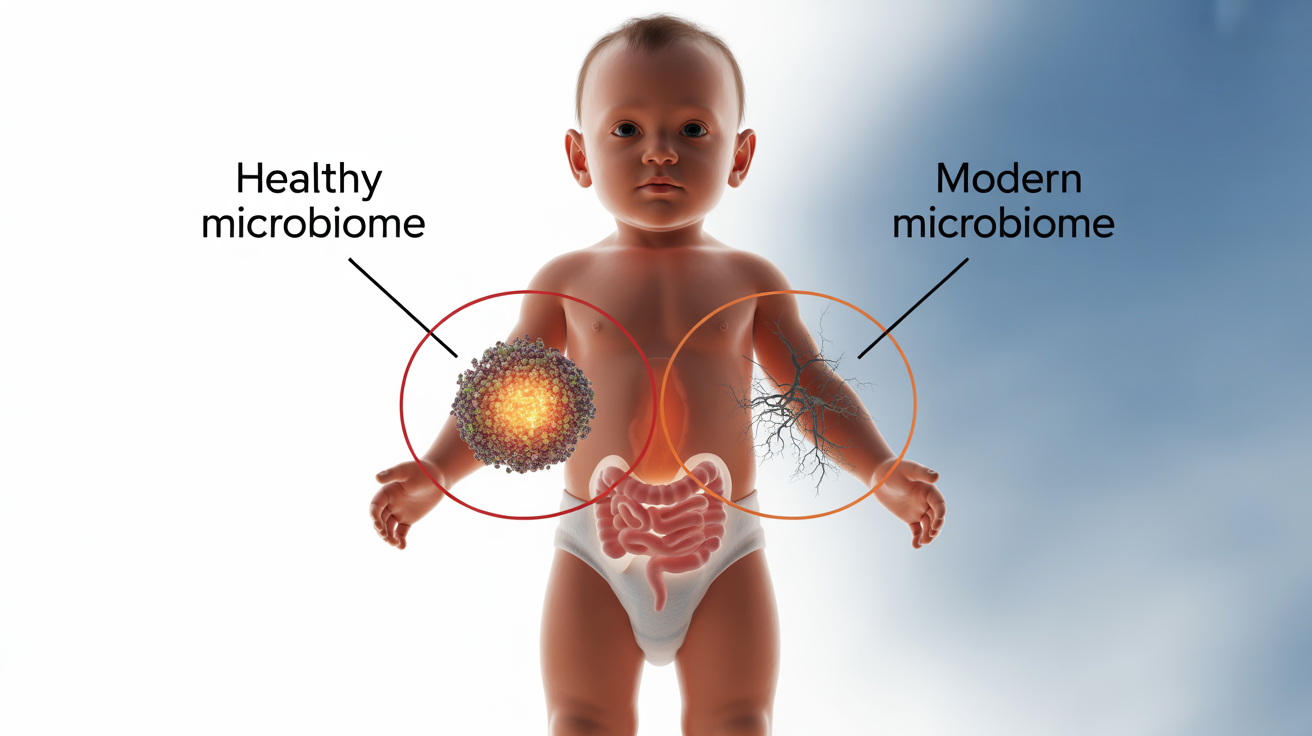What Happens When Babies Lose Bifidobacterium
A microscopic shift that rewires immune response for life.

Dead phone batteries kill productivity, but missing gut bacteria in infants kills immune function before it even develops. A landmark study published in Communications Biology reveals that roughly 25% of U.S. babies completely lack Bifidobacterium. The foundational gut microbe that’s supposed to train their immune systems and protect against disease.
The Hidden Crisis Inside the Modern Infant Gut
This isn’t just another parenting anxiety trigger. The My Baby Biome study analyzed 412 infants across 48 states and discovered that even babies who checked all the “healthy development” boxes. Vaginal delivery, breastfeeding, minimal antibiotic exposure, often lacked this critical bacterial family.
Only 8% of infants carried B. infantis, a species that historically dominated healthy baby guts worldwide.
The consequences hit hard and fast. Babies missing Bifidobacterium faced three times higher risk of developing allergies, eczema, and asthma by age two, according to the research from Persephone Biosciences, the Wellcome Sanger Institute, and UCL Institute for Global Health.
“Nondetectable levels of the most fundamental family type of bacteria for the infant was really surprising to us,” said Stephanie Culler from Persephone Biosciences.
How Industrial Birth Practices Broke the Microbial Chain
Modern medicine created this mess through unintended consequences. C-sections, antibiotic treatments, and formula feeding disrupt the delicate microbial handoff from mother to child.
Without Bifidobacterium colonizing first, harmful bacteria like Clostridium perfringens hijack the nutritional resources in breast milk that should feed beneficial microbes.
The baby’s gut becomes a hostile takeover instead of a protective ecosystem.
The fix isn’t simple, but targeted probiotic interventions show promise. B. infantis supplementation paired with specific prebiotics like HMOs (human milk oligosaccharides) may restore healthy gut colonization in the critical first weeks of life. Some formula makers are racing to add these compounds to their products, though the research is still catching up to the marketing claims.
This microbial crisis reflects broader questions about how industrialized birthing and feeding practices shape lifelong health. With childhood allergy rates doubling over two decades, the missing microbes in baby guts might explain why your kid’s generation faces immune challenges previous generations never experienced.



